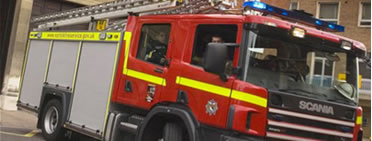A free smartphone application (app) aimed at younger people, which puts important information about the condition in their hands wherever they are, has notched up more than 1,000 downloads in its first year.
The Type 1 Diabetes Friend: Alcohol Guide was developed jointly by Bournemouth University (BU) and Poole Hospital’s Diabetes Centre.
The Type 1 Diabetes Friend: Alcohol Guide is a free app with advice on what people with the condition should do before and after they go on a night out, and what action they should take if they drink different types of alcohol.
People with type 1 diabetes need to be particularly careful when drinking alcohol as it significantly increases the risk of hypoglycaemia (low blood sugar levels) which can, in severe cases, lead to convulsions and loss of consciousness.
The app is aimed at young people with the condition and was developed by Andy Pulman, in conjunction with Poole Hospital Diabetes Centre.
“Different drinks have different alcohol, sugar and carbohydrate levels,” said Andy, who created the app as part of his PhD project at BU.
“The app gives people with type 1 diabetes information about what they should do if they are going out, and what effect different alcoholic drinks might have on their body.”
Andy came up with the idea for the app after interviewing patients with type 1 diabetes, aged between 18 and 21, at Poole Hospital.
People are often diagnosed with type 1 diabetes at a young age and have to take insulin injections for life, making sure their blood sugar levels stay balanced through diet and regular blood testing.
Andy said: “Young people with type 1 diabetes are just like anyone else – chances are they will be drinking, but don’t necessarily want to tell their parents or doctors about it.”
“The idea of this is to have an adviser on their smartphone that’s offering clinically valid advice but in a more user-friendly format and one that’s not specifically viewed as being direct nagging from either the health service or their parents that they can look to for information.”
“Today’s young people have grown up with technology and nowadays will always have their phone close to them.”
Alongside profiles of different drinks and the levels of alcohol they contain – as well what people with type 1 diabetes may need to do if they drink them – the app details typical symptoms of hypoglycaemia and what they should do if their blood sugar levels are low.
“The main things for people with type 1 diabetes who are drinking alcohol are making sure that they take some long-acting insulin before they go out and eat something with carbohydrates before they go to bed.”
The app is available on the Apple Store and for Android phones and has already had more than 1,100 downloads from across the world– including the US, Australia, and Israel.
“We’ve been surprised by the number of downloads,” said Andy,
“When you put something out there, it’s available immediately 24/7 to anyone. People might not have access to that kind of information in their own countries.”
He added: “The amount of people downloading it just shows the power for apps to address issues of health.
“Diabetes is one of the biggest issues for the health service and I think people should be doing a lot more to make use of technology.”
The information was checked and approved by the Patient Advice and Liaison Service at Poole Hospital, and has the Information Standard logo applied to it – the first app to have gone through this process at the hospital.
Dr Mike Masding, a diabetes consultant, and Jai Hill, diabetes nurse specialist, worked with Andy to develop the app.
“The app is a brilliant way in which we can encourage younger people to take important information about their condition with them wherever they happen to be,” said Dr Masding.
“Whilst control of diabetes is important, we don’t want their condition to rule the lives of young people with type 1 diabetes.
“Drinking is something a lot of younger people do, and of course it’s fine in moderation .
“Add diabetes to the mix, though, and the potential for unwanted side-effects, such as hypoglycaemia, is very real.
“This app is an important way in which we can provide that crucial information in a format which would have been unthinkable just a few years ago.”
You can download the free app from the Apple Store or the Google Play App Store for Android users.
Visit the Type 1 Diabetes Friend blog to give feedback on the app and find out more.
 Bournemouth University
Bournemouth University